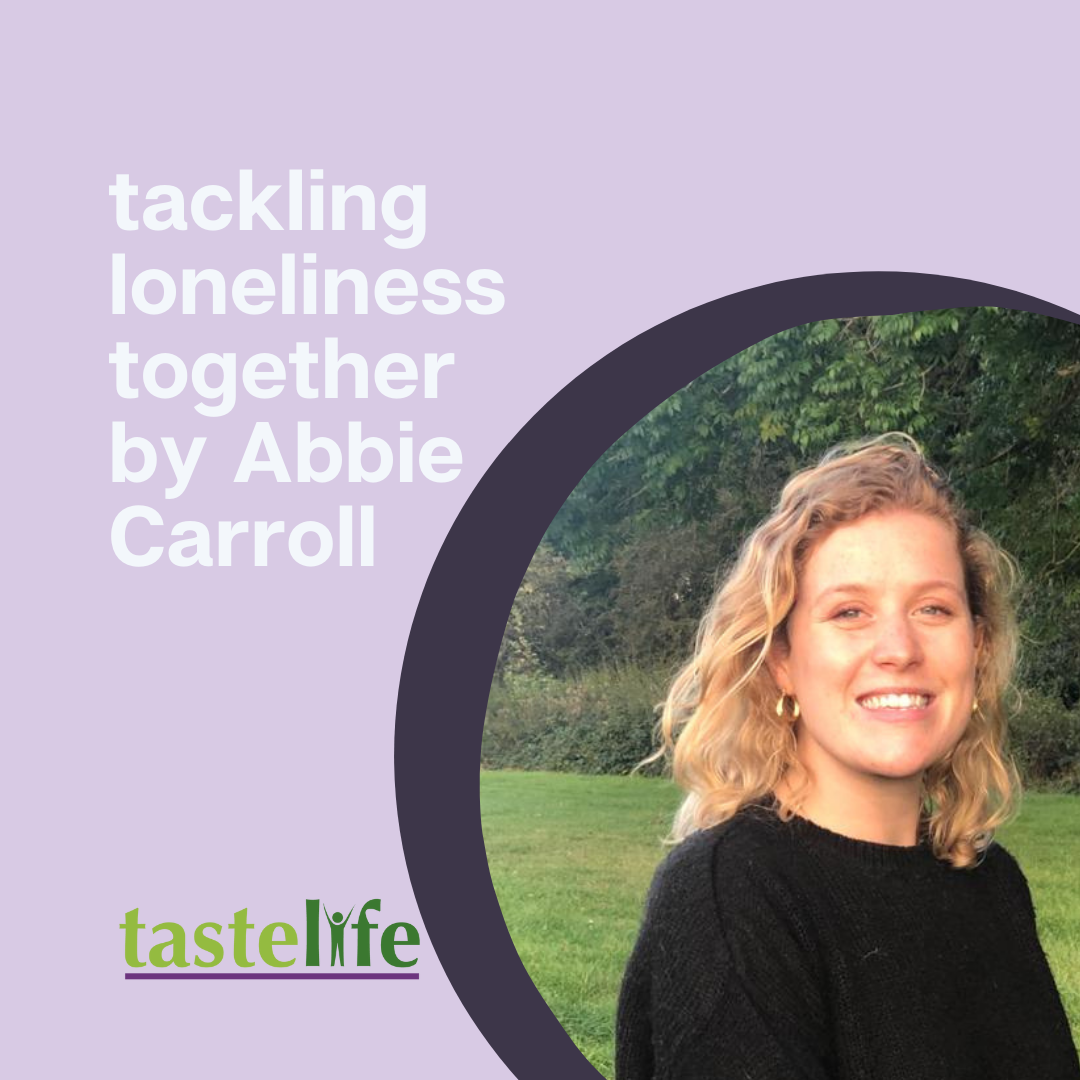It is Mental Health Awareness Week and we are talking about loneliness this year. Research has revealed that one in four adults admit to being lonely some or all of the time. Loneliness is no doubt an incredibly difficult emotion to navigate and the rise in comparison culture and the lack of community through the years of Covid have added fuel to the fire.
The truth is we have all felt lonely at times, and we have all been there at some point. I certainly know how miserable and difficult that feeling can be. The Mental Health Foundation has created some helpful advice on loneliness that can be found here.
Our experience with eating disorders suggests that people who are lonely or live on their own struggle more than others to recover from eating disorders. This highlights how invaluable community care is. If you have an eating disorder or struggle with disordered eating then we advise you to get yourself immersed in a community, one way or another. Our tastelife recovery courses invite both carers and sufferers for this very reason. We believe that recovery shouldn’t just lie on the shoulders of the sufferer but include an understanding from their friends and family that could help them take the steps to full recovery.
Here are some top tips if you are feeling lonely with an eating disorder:
-
- Talk to someone – The first step is telling someone how you are feeling. Find someone you trust, take that risk, and believe that you are not alone and are very loved. This will help you feel safe to share your recovery with others.
- Get on a community course – We run a community course designed to help you feel supported by others whilst taking baby steps to recovery. We recommend connecting with others who are struggling as this will help you feel less alone in the dark place that eating disorders pull us into.
- Be honest along the journey – Being honest with yourself and with others whom you trust will help you catch any negative ways of thinking that may hinder your recovery. As you grow in your understanding of eating disorders and how they affect your thoughts, it will be easier to capture and renew certain thoughts. Honesty is key in this and will help you become more self aware and less isolated.
- Help your friends and family understand what helps you – In order to feel less alone in your struggle, share helpful resources with your close and trusted friends and family. Help them understand what helps you and what hurts you, and this will create a sense of stronger community and connection between you and them.
- Do other things that help you create community that do not involve food. Get out and about if possible, and do activities that nurture you and those around you. If food is a real struggle, do activities unrelated to food such as a walk in the park, a cinema trip or a coffee with an old friend. As we all struggle with loneliness at times, those whom you ask will be as eager as you to spend time with a loved one. Have confidence that you are known, seen and loved. Worthy of spending quality time with.
By Abbie Carroll
May 2022
2022 Mental Health Awareness Week is hosted by the Mental Health Foundation



Add Your Comment